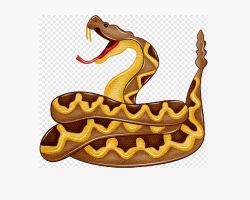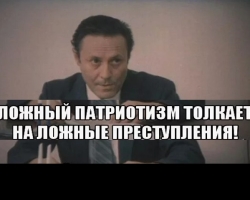Futures is a financial instrument that allows you to make a trading transaction in the future at the current price of the present. It is actively used on the financial exchange, more in the article.
Content
The subject of a futures transaction may be currency, goods, shares. For example, using the futures, you can stipulate the supply of goods in the winter period of time according to favorable conditions of the summer season. Having fixed the summer price for vegetables, in the winter we get a product with significant savings on the price.
Types of market futures
- The documentary accompaniment of the futures is specification. It records the type of futures, assets, dates, market prices, commission, guarantee, etc. Parameters. After the agreed term of the contract, the expiration of futures occurs. Business transactions are short -term.
- The futures contract is divided into two types - delivery and calculated. Delivery futures Actual with real supplies of goods. The seller and the buyer record the amount of goods, the market value and the date of delivery. In case of non -compliance with any of the conditions, the exchange will final one of the participants in the transaction.

- Delivery futures allows the counterparty to fix the counterparty guaranteed sales of goods in the future time at a price advantageous for two participants in the transaction. The buyer is interested in obtaining significant savings on the difference in price in the future. At the same time, there is a risk that reality will not coincide with expectation.
- For example, a setting contract fixes the price of vegetable crop supply. Weather conditions do not allow farmers to grow the desired volume. The price of a lean product begins to grow. The buyer will receive his goods at a fixed price and will remain in the plus. The farmer in this state of affairs could sell the goods at an inflated price, but forced to comply with the terms of the contract.
- Called futures is more popular and is oriented exclusively for monetary settlement. At the time of conclusion, the transaction is recorded The current price of the asset. On the last day of the estimated contract, the price of the asset either increases or decreases. The difference in price will become profit or loss.
- Settlement futures are used for speculative purposes. The most common asset in the settlement contract is currency, gold, oil.
How do futures work in practice?
Futures is an exchange asset. The main goal of trading participants is to buy cheaper to sell more.
- The futures contract leads to various results. At an unchanged asset price, both sides of the transaction remain with their money. If by the end of the transaction the price of the asset increases, then the profit is accrued to the buyer who purchased it at a lower price.

- If, after the contract, the cost of the asset is reduced, then the difference in price is accrued in the form of profit to the seller. The buyer in this case remains in loss. The exchange will credit him with a smaller amount than he spent on a futures transaction.
- The exchange is responsible for the exact fulfillment of the transaction terms. As a guarantee, the seller and the buyer are required to pay part of the amount from the full cost of the futures. Such an advance payment is called warranty support.
The total cost of the futures depends on the price of the asset, the duration of the transaction, interest rate and additional costs associated with storage and risks.
Where to buy futures?
- To buy futures, you need to have a little capital. The conclusion of the transaction occurs using an exchange broker or in the foreign exchange market. In any of the options is possible provision of a credit fee. The bilateral execution of the transaction will be tracked without fail. In fact, the futures market dependent on sellers and buyers.
- Futures It is an instrument of the broker. With it, it takes place head - The exclusion of losses by reducing potential profit.
- The name of the futures contract includes the abbreviated name of the asset and the date of its implementation. If the supply is made earlier than the final validity period, then the contract is considered completed.
- To choose reliable stock broker, you can use the annual rating of stock brokers in Russia. Based on the technical characteristics of companies and the quality of service, real customers leave public reviews. Each new client has the opportunity to get acquainted with the company's ratings and the analytics of the broker.
To conclude a futures contract on the Moscow exchange, it is necessary to introduce at least 15 % of the value of the assets. When buying securities, stock indices are the indicator of their value.
- In the Russian market, it uses confidential recognition futures on the RTS index. It reflects the total cost of shares of a certain number of organizations and is characterized by quick sales, minimal production costs and maximum credit shoulder. The accrual of profit and losses occurs in absentia. The exchange acts as an intermediary and receives a percentage for its services.

- Futures for gold It has its advantages and risks. The plus is the minimum pre -contribution percentage. Futures for gold are concluded with the calculation of raising or lowering the price of metal. Most of the proposals come from gold mines, and interest in offers is most showed by jewelry production. The price of gold largely depends on the available volumes of gold reserves, the dollar and the economic situation in the United States, the availability of lending.
- Futures for oilit is popular with speculators. Exchange oil auction for oil occurs in electronic form. At the same time, oil is a conditional rather than physical asset. To become a member of trading in oil futures, it is enough to invest about 10 thousand rubles. According to experts, oil is the most risky asset for investing in capital.
Advantages of futures trading
- Futures trade It has an understandable transparent structure. The contract excludes any unforeseen changes and fully observes the interests of both parties. At the disposal of the participants in the transaction reliable insurance fund. At the discretion of the broker, you can adjust the credit shoulder.
- The futures transaction has The final date of implementation. Clear terms allow you to plan the process as efficiently as possible and predict the result. At the disposal of the trader there is a maximum of information to minimize risks.

Among the advantages of futures, it is worth noting:
- The availability of transactions for quick conclusion.
- A clear calculation system.
- The ability to review the number of assets during the transaction.
- The openness of the exchange for individuals who do not have exchange assets.
- Low brokerage commission.
The futures contract has great potential for profit in a short time.
Futures trading algorithm
Consider a phased example of trade in futures:
- Stop the choice on one of the brokerage organizations and open an account.
- We give preference one of the directions Futures - for example, futures for gold.
- We analyze and explore the market In the selected direction, we track price jumps and technical tools.
- Based on the collected data, we form an assumption - growth or reduction of price (from and to) and fixed period (number of months).
- Considers available contracts, weigh their cost and possible risks. Choose the most acceptable option.
- Based on financial capabilities, we determine temporary boundaries - The longer the contract, the more expensive it is.
- We buy a gold contract.
- We calculate the difference between the cost of goods and the market price.
- We fix it the maximum decrease in profit When the price of gold falls, in which we are ready to part with the acquired gold ahead of schedule.
- We track the market And if new circumstances are identified, it adjusts the conditions for the acquired asset.

For example, at your disposal 200 dollars for the purchase of gold. By the condition of the exchange, you need to make a 20% pledge from the main value of the asset. For $ 200, you can purchase 10 futures contracts, undertaking after 4 months to buy 10 ounces of gold $ 200 for each. During the transaction, you will not be able to dispose of money in your account.
After two months of agreement, the price of gold was justified by 20% and amounted to $ 240 per ounce. You decide to sell gold for $ 240 per ounce, without waiting for the end of the contract. The exchange will unlock your account, will accrue your 100 % profit. With a decrease in the price of gold, losses will be withdrawn from your account.
The difference between the trade in futures and options
A novice trader has a question - what's the difference between the markets? What to choose - promotions, futures, forex, options?

- If we consider the technical side of transactions, then the conditions are approximately the same. Sales and purchases are carried out using special trading programs. The key difference is the competitiveness within the market. Fast and profitable sales attract more professionals and it becomes more difficult for a beginner to earn.
- The most liquid is considered stock market. The structure of the market is regulated by state bodies, which gives the market participants additional guarantees. Maximum information is provided about market participants, which completely eliminates fraud. You can start trading with input capital from $ 100.
- Futures market.Tools of futures trading are bonds, currencies, indices and raw materials. For beginners, the futures market is not the most suitable option. To receive profit and cover costs, futures trade should begin with a capital of at least 10 thousand dollars. Therefore, with low capital, futures are accompanied by a credit shoulder, which is always accompanied by risk.
- Forex foreign exchange market.The main market participants are large banks and funds. The market is filled with scammers and intermediaries. Internal schemes allow you to start trade with $ 20.
- Options.To enter the market, from 10 to $ 500 enough. Options are traded in futures, shares and foreign exchange markets. For positive results, options require a qualitative analysis of the internal asset.

Close in meaning are options and futures. The key difference is the condition of buying an asset. According to the futures, the participant in the transaction is obliged to buy the goods within the agreed time, according to the option, the owner of the asset has the right to purchase, but may not use it.







